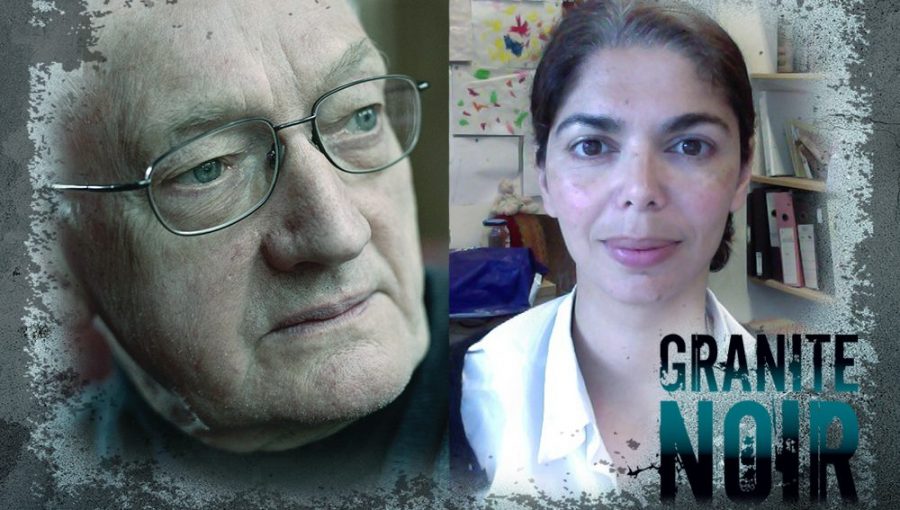This session at Granite Noir, chaired by Peggy Hughes, is attempting to provide a context for the evil which motivates humans to commit terrible crimes. This is a discussion about the real world, not fiction. Richard Holloway begins by asking whether ‘evil is a function of materiality or some transcendent reality’. Dr Zohar Hadromi-Allouche gives a synopsis of The Origin of Evil, a story from the Islamic mystical tradition, which describes how Satan first entered humans. Denise Mina raises the idea of othering – ‘evil is always someone else’.
This issue of evil spans theology, philosophy, sociology, even neurology. Unlikely to reach any steadfast conclusions within an hour, nevertheless this is a fascinating, broad-ranging discussion highlighting the difficulty of making virtue glamorous, the problem of over-moralising the universe (Holloway); how women criminals are framed completely differently in our criminal justice system (Mina); the thorny idea that the perpetrator’s route to evil, whether through abuse or neglect, is of no interest to their victims (Hadromi-Allouche) and how we can undermine people’s experience through the language we use to discuss evil (Hadromi-Allouche again).
Audience questions are triggering even more ethical issues: what do we do with the knowledge neurological determinism provides; can children perceive evil differently to adults; has there been victimisation of paedophiles; does lack of hope lead ultimately to crime. No. For Denise Mina, lack of hope leads to criminalisation of the working class and militarising of the police.
Enlightened thinking brings an event such as this to a book festival. Challenging to the speakers as well as the audience it could easily become a regular feature at the festival drawing on up to date thinking from many stakeholders and academic disciplines. Rarely does an hour pass so quickly and enjoyably. More please.
